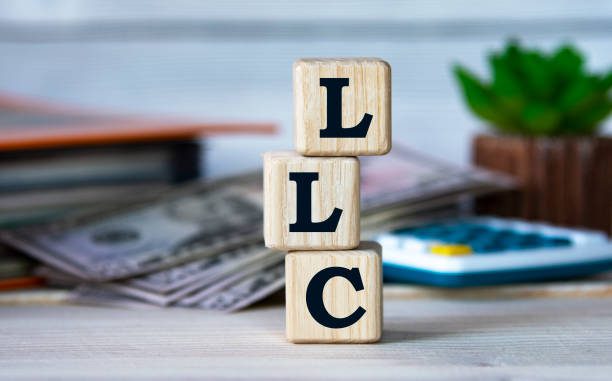If you’re planning to start a business, one of the first big decisions you’ll face is choosing the right business structure. Many entrepreneurs decide to form an LLC (Limited Liability Company) because it offers flexibility, legal protection, and tax advantages. Whether you’re a freelancer, small business owner, or launching a startup, understanding how to form an LLC is an essential step toward building a solid business foundation.
In this guide, we’ll explain what an LLC is, why you should consider forming one, and walk you step-by-step through the process of creating your own LLC.
What Is an LLC?
An LLC (Limited Liability Company) is a type of business entity that combines the benefits of a corporation and a sole proprietorship or partnership. It provides limited liability protection, meaning your personal assets — such as your home or car — are generally protected if your business faces lawsuits or debts.
Unlike corporations, LLCs are simpler to manage and have fewer ongoing requirements. They also offer pass-through taxation, which means profits and losses pass directly to the owners’ personal tax returns, avoiding the double taxation that corporations face.
Why You Should Form an LLC
Before you form an LLC, it’s important to understand why this structure might be the best fit for your business. Here are the main benefits:
1. Limited Liability Protection
The biggest reason entrepreneurs choose to form an LLC is personal asset protection. If your business is sued or can’t pay its debts, your personal savings, car, or house are typically safe.
2. Tax Flexibility
LLCs are taxed as “pass-through entities” by default. This means the business itself doesn’t pay federal income taxes — instead, the profits “pass through” to the owners’ tax returns. However, you can also choose to have your LLC taxed as an S Corporation or C Corporation for potential tax savings.
3. Simple Management and Operation
When you form an LLC, you don’t need to hold formal board meetings or maintain extensive corporate records. The management structure is flexible, and you can run the business yourself (as a single-member LLC) or with partners (multi-member LLC).
4. Enhanced Credibility
Having “LLC” in your business name gives your company a professional appearance. Clients and vendors often see LLCs as more established and trustworthy than sole proprietorships.
5. Easier Access to Business Funding
Many lenders and investors prefer working with LLCs. Forming an LLC can make it easier to open a business bank account or apply for financing.
Steps to Form an LLC
The process of forming an LLC is straightforward but requires attention to detail. While each state has slightly different rules, the steps below apply across most of the U.S.
Step 1: Choose Your State
You can form an LLC in any state, but most business owners choose their home state. Some choose states like Delaware, Wyoming, or Nevada for favorable tax laws and privacy protections — but that often makes sense only for larger or online businesses.
Step 2: Pick a Unique Business Name
Your LLC name must be unique and comply with your state’s naming rules. It should include the words “Limited Liability Company” or an abbreviation like “LLC” or “L.L.C.”
Check your state’s business database to ensure the name isn’t already taken.
Step 3: Appoint a Registered Agent
A registered agent is a person or company authorized to receive official documents, legal notices, and government correspondence on behalf of your LLC. You can act as your own registered agent or hire a professional service.
Step 4: File the Articles of Organization
This is the official document that legally creates your LLC. You’ll submit it to your state’s Secretary of State office, usually online. The filing fee ranges from $50 to $300, depending on the state.
Step 5: Create an LLC Operating Agreement
Although not always required by law, an Operating Agreement is a crucial internal document. It outlines ownership structure, management duties, profit distribution, and what happens if a member leaves the company. Having one helps prevent future conflicts.
Step 6: Get an EIN (Employer Identification Number)
You’ll need an EIN from the IRS for tax purposes, hiring employees, or opening a business bank account. You can apply for one online for free at IRS.gov.
Step 7: Open a Business Bank Account
To maintain liability protection, keep your personal and business finances separate. Open a dedicated business bank account under your LLC’s name. This will help you manage taxes and accounting more efficiently.
Step 8: Stay Compliant
After you form an LLC, make sure to meet ongoing state requirements, such as filing annual reports and paying renewal fees. You should also maintain good records and pay any local business taxes or licenses.
How Much Does It Cost to Form an LLC?
The total cost to form an LLC varies by state but typically ranges from $100 to $500. Here’s a general breakdown:
- State filing fee: $50–$300
- Registered agent service: $100–$150 per year
- Operating agreement (if prepared professionally): $50–$200
- Annual or biennial report fee: $20–$100
If you use an online LLC formation service, you’ll also pay a service fee (usually $50–$150), but they handle paperwork, filings, and compliance reminders for you.
Common Mistakes to Avoid When Forming an LLC
Even though forming an LLC is simple, many entrepreneurs make preventable mistakes:
- Mixing personal and business funds – Always keep finances separate to maintain liability protection.
- Not filing required reports – Missing annual filings can lead to penalties or even LLC dissolution.
- Skipping the Operating Agreement – Even single-member LLCs should have one for clarity.
- Ignoring taxes – Some states require additional business taxes or franchise fees for LLCs.
- Choosing the wrong name – Make sure your LLC name is easy to remember, unique, and compliant with state rules.
Should You Use an LLC Formation Service?
If you prefer a hands-off approach, you can use a professional LLC formation service. These companies handle filings, registered agent services, and compliance reminders. This option is ideal if you’re busy or new to business formation.
Popular LLC formation services (like LegalZoom, ZenBusiness, or Northwest Registered Agent) make the process fast, affordable, and error-free.
Final Thoughts: Is Forming an LLC Right for You?
When you form an LLC, you’re taking an important step toward protecting your personal assets and legitimizing your business. It’s a simple, affordable structure that offers flexibility, tax advantages, and peace of mind.
Whether you handle the paperwork yourself or use a professional service, forming an LLC gives you the legal and financial foundation to grow your business confidently.
If you’re ready to form an LLC, start today by checking your state’s filing requirements and reserving your business name — your future self will thank you.



































